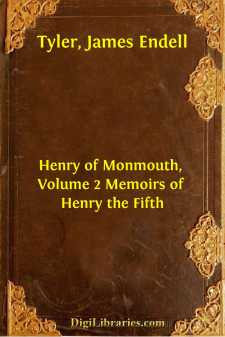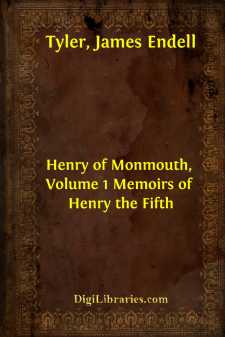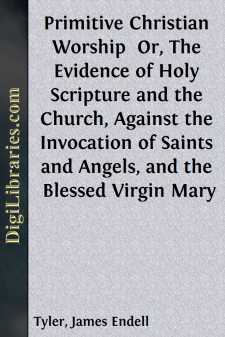Categories
- Antiques & Collectibles 13
- Architecture 36
- Art 48
- Bibles 22
- Biography & Autobiography 813
- Body, Mind & Spirit 142
- Business & Economics 28
- Children's Books 14
- Children's Fiction 11
- Computers 4
- Cooking 94
- Crafts & Hobbies 4
- Drama 346
- Education 46
- Family & Relationships 57
- Fiction 11829
- Games 19
- Gardening 17
- Health & Fitness 34
- History 1377
- House & Home 1
- Humor 147
- Juvenile Fiction 1873
- Juvenile Nonfiction 202
- Language Arts & Disciplines 88
- Law 16
- Literary Collections 686
- Literary Criticism 179
- Mathematics 13
- Medical 41
- Music 40
- Nature 179
- Non-Classifiable 1768
- Performing Arts 7
- Periodicals 1453
- Philosophy 64
- Photography 2
- Poetry 896
- Political Science 203
- Psychology 42
- Reference 154
- Religion 513
- Science 126
- Self-Help 84
- Social Science 81
- Sports & Recreation 34
- Study Aids 3
- Technology & Engineering 59
- Transportation 23
- Travel 463
- True Crime 29
Henry of Monmouth, Volume 2 Memoirs of Henry the Fifth
Categories:
Description:
Excerpt
henry of monmouth's accession. — national rejoicings. — his profound sense of the awfulness of the charge devolved upon him. — coronation. — first parliament. — habits of business. — he removes the remains of richard to westminster. — redeems the son of hotspur, and restores him to his forfeited honours and estates. — generous conduct towards the earl of march. — parliament at leicester. — enactments against lollards. — henry's foundations at shene and sion.
1413-1414.
HENRY, KING.
Henry IV. died at Westminster on Monday, March 20, 1413, and Henry of Monmouth's proclamation bears date on the morrow, March 21. Never perhaps was the accession of any prince to the throne of a kingdom hailed with a more general or enthusiastic welcome. If serious minds had entertained forebodings of evil from his reign, (as we believe they had not,) all feelings seem to have been absorbed in one burst of gladness. Both houses of parliament offered to swear allegiance to him before he was crowned: a testimony of confidence and affection never (it is said) before tendered to any English monarch. This prevalence of joyous anticipations from the accession of their young King could not have sprung from any change of conduct or of principle then first made known. Those who charge Henry most unsparingly represent his conversion as having begun only at his father's hour of dissolution. But, before that father breathed his last, the people of England were ready to welcome most heartily his son, such as he was then, without, as it should seem, either hearing of, or wishing for, any change. His principles and his conduct as a ruler had been put to the test during the time he had presided at the council-board; and the people only desired in their new King a continuance of the same wisdom, valour, justice, integrity, and kind-heartedness, which had so much endeared him to the nation as their Prince. In his subjects there appears to have been room for nothing but exultation; in the new King himself widely different feelings prevailed. Ever, as it should seem, under an awful practical sense, as well of the Almighty's presence and providence and majesty, as of his own responsibility and unworthiness, Henry seems to have been suddenly oppressed by the increased solemnity and weight of the new duties which he found himself now called upon to discharge. The scene of his father's death-bed, (carried off, as that monarch was, in the very meridian of life, by a lingering loathsome disease,) and the dying injunctions of that father, may doubtless have added much to the acuteness and the depth of his feelings at that time. And whether he be deemed to have been the licentious, reckless rioter which some writers have been anxious to describe, or whether we regard him as a sincere believer, comparing his past life (though neither licentious nor reckless) with the perfectness of the divine law, the retrospect might well depress him with a consciousness of his own unworthiness, and of his total inability to perform the work which he saw before him, without the strength and guidance of divine grace. For that strength and that guidance, we are assured, he prayed, and laboured, and watched with all the intenseness and perseverance of an humble faithful Christian. Those who are familiar with the expressions of a contrite soul, will fully understand the sentiments recorded of Henry of Monmouth at this season of his self-humiliation, and the dedication of himself to God, and may yet be far from discovering in them conclusive arguments in proof of his having passed his youth in habits of gross violation of religious and moral principle....




